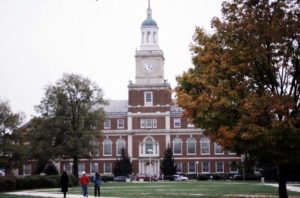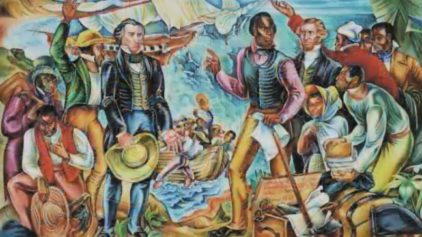
Howard University
The Founder’s Library at Howard University was named a national treasure by the National Trust for Historic Preservation on Feb. 29.
The library is on the campus of a historically Black university, and the National Trust, which has renovated 14 of 50 projects nationwide so far, will make over the library by outfitting it with the newest technological advancements.
“The designation of Founders Library as a national treasure is an honor,” said Howard President Wayne A.I. Frederick in February to the Howard University News Service. “This recognition is a testament to the many treasures here at Howard University. Additionally, we are excited to partner with the National Trust for the restoration of the Library, as we continue to make strides in offering our students a preeminent education with the best available resources.”
The non-profit organization ensures they will work to preserve the character of the building. Brent Leggs, senior field officer at the trust, said they are assembling a team of preservation architects and business leaders to secure funds for the project. He estimated the project will cost at least a few million dollars. American Express is expected to contribute to funding, although the company has not made any commitments. The preservation group will assist the university in getting tax grants that could lower the cost of construction by 20 percent, but Howard will have to help fund the project themselves. The HBCU hopes to raise money for the library through a fundraising campaign for their 150th anniversary next year, according to The Washington Post.
New Journal Guide reports the library’s facilities are used by writers, researchers and historians worldwide. It was initially designed by Black architect Albert I. Cassell using over $1 million from the federal Public Works Administration. Opening in 1939, the project took more than two years to complete. The library was commissioned under the university’s first Black president, Dr. Mordecai Wyatt Johnson and was named in memory of the university’s founders.


